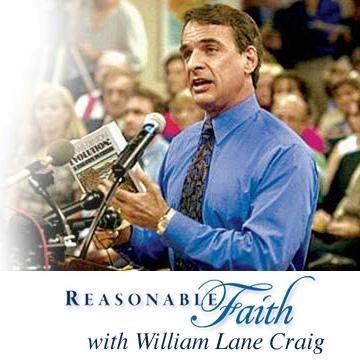The Nature of Faith
Reasonable Faith Podcast
William Lane Craig
4.7 • 1.5K Ratings
🗓️ 2 May 2022
⏱️ 26 minutes
🧾️ Download transcript
Summary
Transcript
Click on a timestamp to play from that location
| 0:00.0 | Well, Bill, in writing your systematic philosophical theology, which you're very busy doing, you've |
| 0:13.3 | revisited the definition and nature of faith, this article by a skeptic that we're going |
| 0:19.2 | to look at, gives us a chance to discuss it and perhaps apply it, and as we begin, tell |
| 0:25.4 | us about your lecture at the Evangelical Philosophical Society conference, because there are certain |
| 0:32.4 | things that this article mentions that you were talking about in that lecture, does Christian faith |
| 0:37.4 | imply belief? And you talk about things like saving faith. My question that I was posing was whether |
| 0:47.5 | Christian faith or saving faith implies belief, and I distinguished between what I call personal |
| 0:56.7 | faith and propositional faith. Personal faith is trust in a person. Propositional faith is belief |
| 1:08.2 | in a proposition, and it seems to me that saving faith implies both personal trust in God and |
| 1:16.6 | Christ, but then also propositional faith, belief in certain propositions. For example, Paul says, |
| 1:25.2 | if you confess with your lips that Jesus is Lord, and believe in your heart, that God raised him |
| 1:33.0 | from the dead, you will be saved. So here Paul mentions two propositions that should be believed |
| 1:42.7 | as conditions of salvation, namely that Jesus is Lord, and that God raised him from the dead. |
| 1:49.1 | And so in my paper, I argued that the nature of biblical faith is that it's more than just |
| 1:56.5 | personal trust. It is also propositional belief. Richard Miller, who describes himself as a |
| 2:05.7 | humanistic critic of contemporary religion and a transdisciplinary research scholar, |
| 2:11.6 | exploring the cultural and literary nexus between classical antiquity and the social origins of |
| 2:18.3 | earliest Christianity, end of quote there, wrote this article, and we can sum up the first two |
| 2:25.4 | paragraphs as his saying that Roman classical mythology was replaced by Christian mythology and |
| 2:33.6 | that both were just accepted on blind faith. He says, quote, epistemic knowledge |
| 2:40.5 | argumentation and evidentialist ground for any rational propositional case were conspicuously |
| 2:48.3 | absent, not merely non-central, in the early Christian apologetic tradition. But why? The only |
... |
Please login to see the full transcript.
Disclaimer: The podcast and artwork embedded on this page are from William Lane Craig, and are the property of its owner and not affiliated with or endorsed by Tapesearch.
Generated transcripts are the property of William Lane Craig and are distributed freely under the Fair Use doctrine. Transcripts generated by Tapesearch are not guaranteed to be accurate.
Copyright © Tapesearch 2025.

